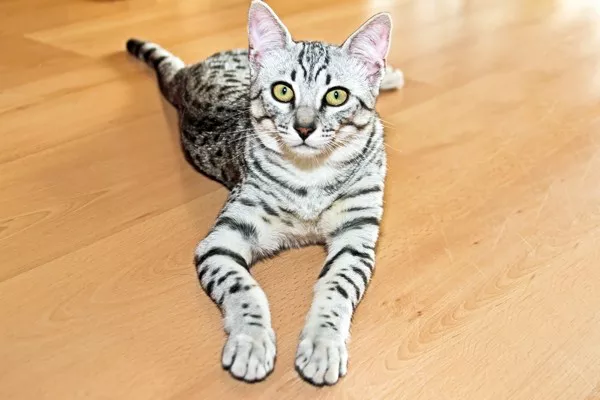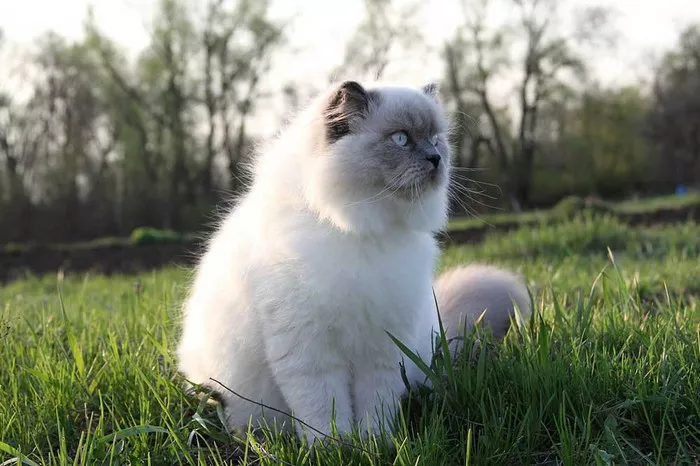The Egyptian Mau is one of the oldest and most distinguished cat breeds, known for its striking appearance and unique characteristics. Among these characteristics is the breed’s distinct vocalization, which sets it apart from other cats. Understanding the sounds an Egyptian Mau makes can provide valuable insights into its behavior, communication methods, and personality. This article will delve into the various sounds that Egyptian Maus make, what they mean, and how they compare to other cat breeds.
The Vocal Range of the Egyptian Mau
The Egyptian Mau is known for its wide range of vocalizations, which can be quite expressive. These vocalizations are a key part of the breed’s communication repertoire and can convey a variety of emotions and needs. The primary sounds an Egyptian Mau makes include:
- Meowing
- Chirping
- Chattering
- Purring
- Growling and Hissing
Meowing: The Versatile Communicator
Meowing is the most common sound associated with cats, and the Egyptian Mau is no exception. However, the Mau’s meows are often more varied and expressive than those of other breeds. They use different pitches, lengths, and volumes of meows to communicate a range of messages, including:
Greeting: A short, soft meow when you enter a room or come home.
Attention-Seeking: A louder, more insistent meow when they want your attention or food.
Discomfort or Pain: A sharp, high-pitched meow if they are hurt or feeling unwell.
Contentment: A gentle, rhythmic meow that signifies they are happy and relaxed.
Chirping: The Unique Sound of Excitement
One of the distinctive sounds of the Egyptian Mau is its chirping. This sound is often described as similar to a bird’s chirp and is typically made when the cat is excited or interested in something. For example:
Watching Birds: An Egyptian Mau may chirp while observing birds through a window, showing their hunting instincts and excitement.
Greeting: They may chirp when greeting their owners or other pets, indicating happiness and enthusiasm.
Playtime: Chirping can also occur during play, especially when they are particularly engaged or chasing a toy.
Chattering: The Hunter’s Call
Chattering is another sound unique to the Egyptian Mau and is closely related to their hunting instincts. This sound is a rapid clicking or chattering noise made by the cat’s teeth. It usually occurs when they see prey, such as birds or insects, that they cannot reach. This sound is believed to be a mimicry of the sound a cat’s prey might make, a display of frustration, or a combination of both. It’s a fascinating glimpse into the Mau’s predatory nature.
Purring: The Sound of Contentment
Purring is a universal sign of contentment and relaxation among cats, and the Egyptian Mau is no different. However, Maus are known for having a particularly melodious and rhythmic purr. They purr in various situations, including:
Relaxation: When lying on a favorite spot or being petted.
Bonding: During close contact with their owners, such as cuddling or sitting on their lap.
Comfort: When trying to comfort themselves, such as after a stressful event or visit to the vet.
See Also: What is the Best Food for Siamese Cats?
Growling and Hissing: Signs of Distress
Like all cats, Egyptian Maus can growl and hiss when they feel threatened, scared, or angry. These sounds serve as warnings to back off and give them space. Understanding these vocalizations is crucial for respecting their boundaries and ensuring their well-being. Common triggers for growling and hissing include:
Strangers: Encountering unfamiliar people or animals.
Territorial Disputes: Defending their territory from other pets.
Fear or Pain: Experiencing discomfort, pain, or fear in various situations.
Comparing Egyptian Mau Sounds to Other Breeds
The Egyptian Mau’s vocalizations are more diverse and expressive compared to many other cat breeds. While all cats have their unique sounds, certain breeds are known for specific vocal characteristics:
Siamese: Known for their loud and persistent meows, often described as “talkative.”
Bengal: Similar to the Egyptian Mau, they also chirp and chatter, reflecting their active and curious nature.
Persian: Generally quieter, with soft and infrequent meows.
Compared to these breeds, the Egyptian Mau stands out for its chirping and chattering, which are not as commonly heard in other breeds.
Understanding the Context of Egyptian Mau Vocalizations
To fully appreciate and understand the sounds an Egyptian Mau makes, it’s important to consider the context in which they occur. The same sound can have different meanings depending on the situation. Here are some scenarios to consider:
During Playtime
Chirping: Indicates excitement and engagement with toys or games.
Meowing: Short, rhythmic meows can signal enjoyment or a request for more playtime.
When Hungry or Thirsty
Loud Meowing: A persistent, loud meow can indicate hunger or thirst.
Chirping: Occasionally, they might chirp if they see food being prepared or served.
In New Environments
Meowing: Soft, cautious meows can indicate curiosity or slight anxiety.
Purring: If they are comfortable, they might purr to self-soothe.
Interaction with Owners
Greeting Meows: Soft, welcoming meows when you enter a room.
Purring: During petting or cuddling sessions, showing contentment.
Encountering Other Animals
Growling or Hissing: When they feel threatened or need to establish boundaries.
Chirping or Chattering: When observing other animals, especially prey.
Tips for Responding to Your Egyptian Mau’s Sounds
Understanding and responding appropriately to your Egyptian Mau’s vocalizations can strengthen your bond and ensure their well-being. Here are some tips:
Acknowledge Their Needs
Respond to Meows: If your Mau is meowing for attention, food, or to be let outside, acknowledge their request. This doesn’t always mean giving in, but ensuring their needs are met.
Engage in Play
Interactive Toys: Use toys that stimulate their hunting instincts, like feather wands or laser pointers, especially if they are chirping or chattering.
Scheduled Playtime: Regular play sessions can reduce excessive vocalizations due to boredom or pent-up energy.
Provide a Safe Environment
Secure Spaces: Ensure they have safe spaces to retreat to if they feel threatened, reducing the likelihood of growling or hissing.
Gradual Introductions: Introduce new people or pets slowly to minimize stress and negative vocalizations.
Comfort and Reassure
Purring: If your Mau is purring during stressful times, offer comfort and reassurance through gentle petting and a soothing voice.
Calm Presence: Maintain a calm and composed demeanor to help reduce their anxiety and associated vocalizations.
Common Misunderstandings About Egyptian Mau Sounds
Misinterpretation of Chirping
Some owners might mistake chirping for distress, but it is usually a sign of excitement and curiosity. Understanding this can help in providing appropriate responses, such as engaging in interactive play.
Ignoring Persistent Meowing
While some meowing is normal, persistent and loud meowing can indicate unmet needs or health issues. It’s important to investigate the cause rather than simply ignoring it.
Overlooking Growling and Hissing
These sounds are clear warnings that your Mau is feeling threatened. Ignoring these signs can lead to escalated aggression or stress for the cat. Always take these sounds seriously and address the underlying issue.
Conclusion
The Egyptian Mau’s vocalizations are as unique and fascinating as the breed itself. From melodic purrs and expressive meows to distinctive chirping and chattering, these sounds provide valuable insights into their emotions and needs. By understanding and appropriately responding to these vocalizations, you can enhance your bond with your Egyptian Mau and ensure their well-being.
Recognizing the context of their sounds, providing a safe and stimulating environment, and acknowledging their needs are key to fostering a harmonious relationship with your Egyptian Mau. With their rich vocal repertoire, these cats offer a truly engaging and interactive pet experience, making them a delight for any cat lover.

























